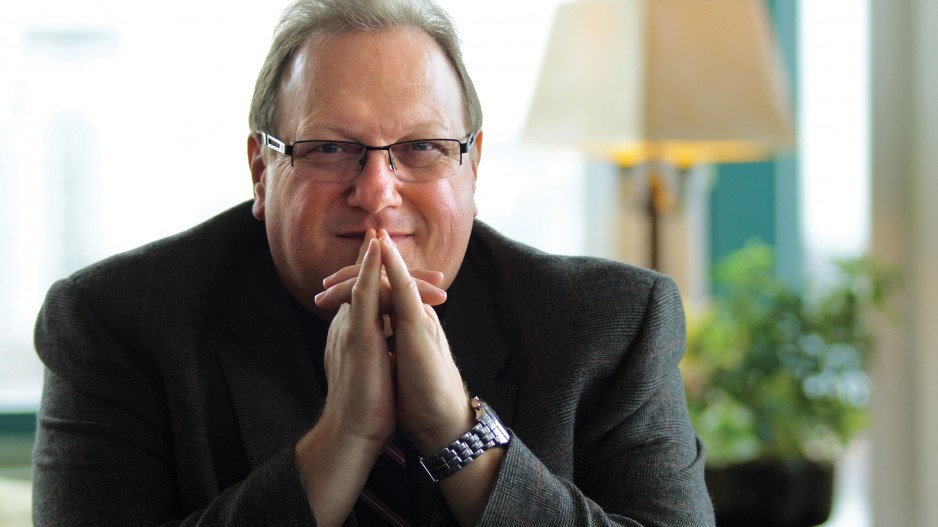The Fraser Valley housing market has been on a roller-coaster ride since January, but sales and listings have moved closer to historical averages, says Charles Wiebe, president of the Fraser Valley Real Estate Board’s (FVREB).
Wiebe acknowledged 2016 has been like no other in the valley.
“It’s definitely been an unprecedented year,” he said. “It will definitely be interesting to see where we go from here on out.”
The year got off to a fast start in Surrey and other cities in the valley. By February sales had taken off, posting a 79% increase from February 2015 and a 78% increase from the previous month. In March there were 3,006 sales processed, setting the all-time high since the FVREB’s inception in 1921. By June the seller’s market had spilled over to townhomes and apartments as inventory remained well below historical averages, pushing many properties into multiple offers and bidding wars.
But by July the market cooled off, with sales falling 10.2% compared with the 2,184 recorded in July 2015. It was also a 31.5% drop compared with the 2,864 transactions processed in June 2016.
Wiebe said the up-and-down figures for 2016 paint a compelling picture.
“There’s no doubt looking at our sales today compared to where they were at the early part of the year, it appears quite dramatic,” he said. “But when we compare our sales here from September to this point in October, we’re really at the average that we’ve had over the last 10 years – both in the number of sales and listings coming onto the marketplace.” He added that the return to a “balanced market” is good for both buyers and sellers.
FVREB figures for September show housing sales dropping below the 10-year average for the first time this year. There were 1,305 sales processed in September, a 24.4% decrease compared with September 2015, and a 23% decrease from August of this year.
The number of new listings dropped to its lowest level in seven months, and for the Fraser Valley region, the average number of days it took in September to sell a single-family detached home was 27, compared with 17 in June.
Wiebe said the figures for the Fraser Valley weren’t hit nearly as hard as those of the Real Estate Board of Greater Vancouver (REBGV) after the August implementation of the 10% foreign-buyer tax, adding that foreign buyers account for only somewhere between 5% and 8% of the market in the Fraser Valley. He said the only area to show a substantial drop was White Rock. He noted the FVREB was “unhappy” with the way the tax was implemented, and said working-class immigrants in communities all over the Fraser Valley were “unfairly targeted.”
“There were some foreign buyers [in the Fraser Valley] who could barely come up with the money to qualify to begin with,” he said. “People who were already working in the communities, who were sought out to come to our communities because of their skills. People who have come to the community who are paying taxes and buying goods and services. I don’t understand how they’re already contributing, but they also have to pay the tax?”
Matt Morrow, a realtor with Re/Max who has been selling in the Fraser Valley since 2005, said he has seen ripple effects from the foreign-buyer tax.
“Yes, things have definitely slowed down over the past six to eight weeks,” Morrow said. “There were signs of it slowing up just prior to the foreign investment tax being implicated, then the arrival of the tax seemed to have a further impact. It’s been more so on the higher-end homes, with a trickle-down effect into the mid-range.”
Morrow said inventory levels have been steadily climbing since, but there are still a lot of sellers who are not willing to negotiate lower prices.
“[They’re] hoping for a correction and are patiently waiting. Few are in a hurry to pull the trigger and with more to choose from it will have some impact, at least temporarily.”
Metro Vancouver home sales totalled 2,253 in September, a 9.5% decrease compared with August and a 32.6% drop from September 2015. Sales within the REBGV’s jurisdiction were 9.6% below the 10-year sales average for the month. President Dan Morrison acknowledged the market was heavily influenced by the foreign-buyer tax in a press release.
“Changing market conditions are easing upward pressure on home prices in our region,” he said. “There’s uncertainty in the market at the moment and home buyers and sellers are having difficulty establishing price as a result.”
In October, the federal Liberal government announced sweeping changes to the mortgage rules, looking to tighten up lending and make mortgage insurance mandatory for buyers with down payments of between 5% and 20% of the purchase price. The Bank of Canada left its benchmark overnight rate unchanged at 0.5% in an October announcement by governor Stephen Poloz. Some analysts stated this may clear the way for an interest rate drop in the near future, but Wiebe said he stopped trying to predict what Canada’s central bank might do long ago.
“I can honestly say every time I’ve predicted what’s going to happen with interest rates, I’ve been wrong. Especially for my own mortgage. So to be honest I’m not sure how that will develop.”




